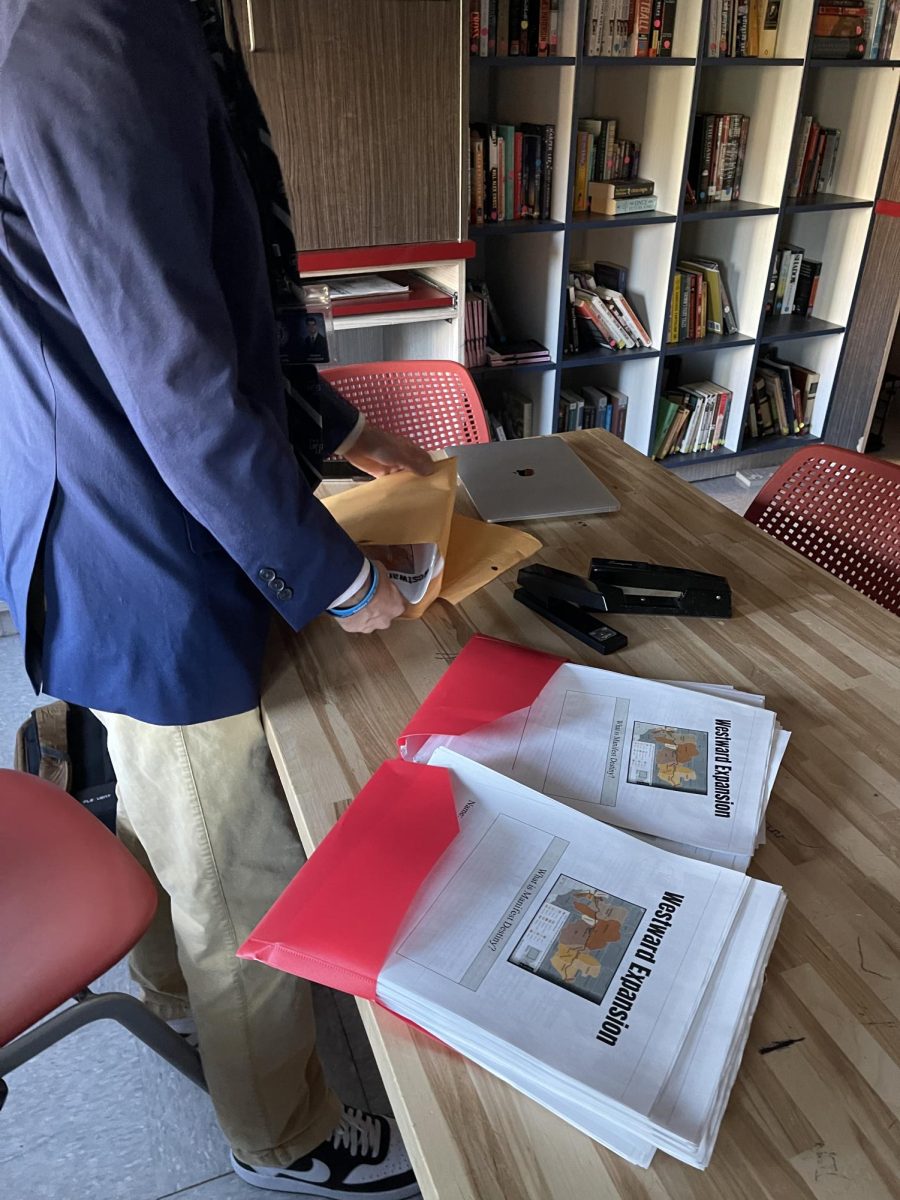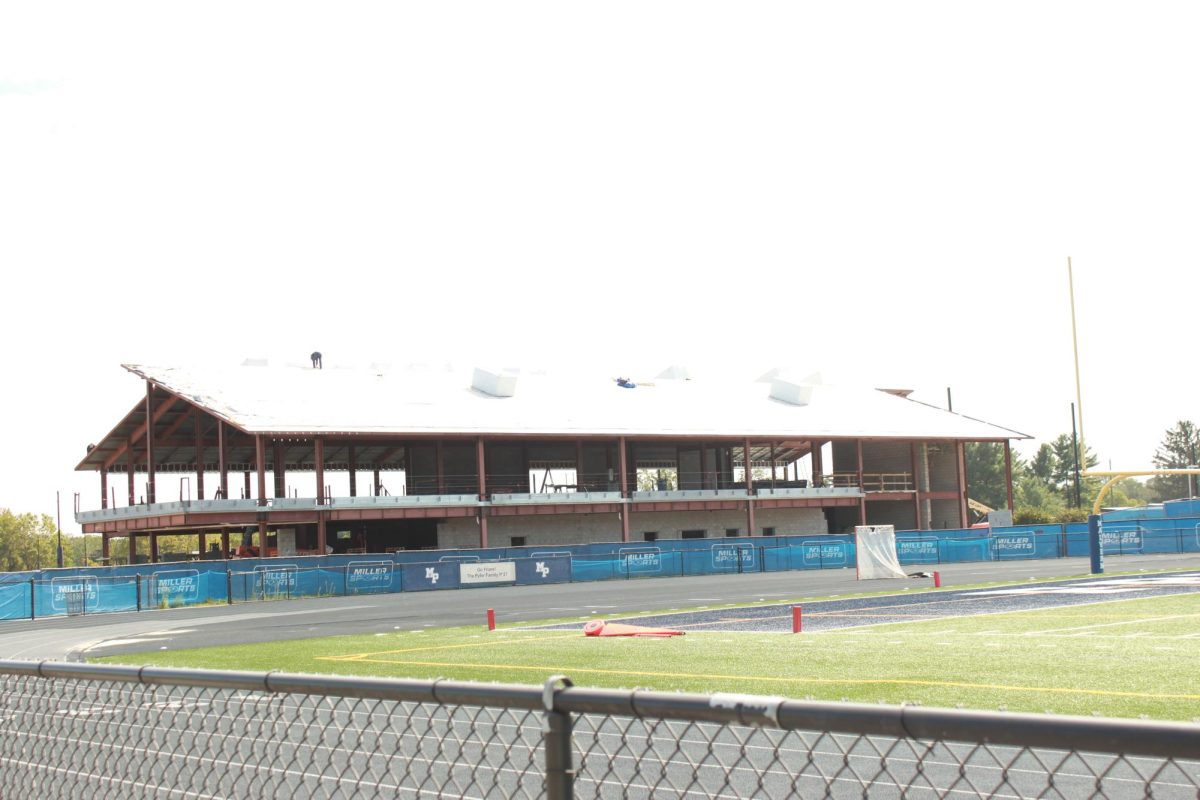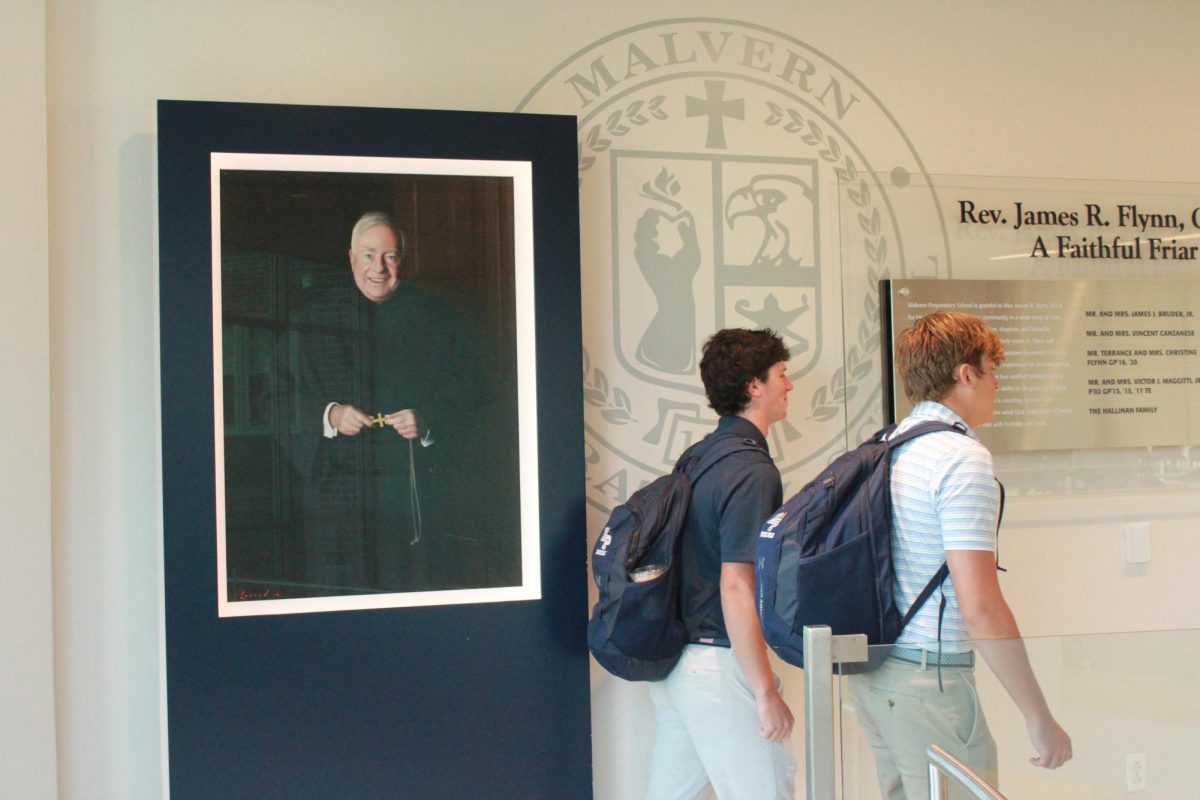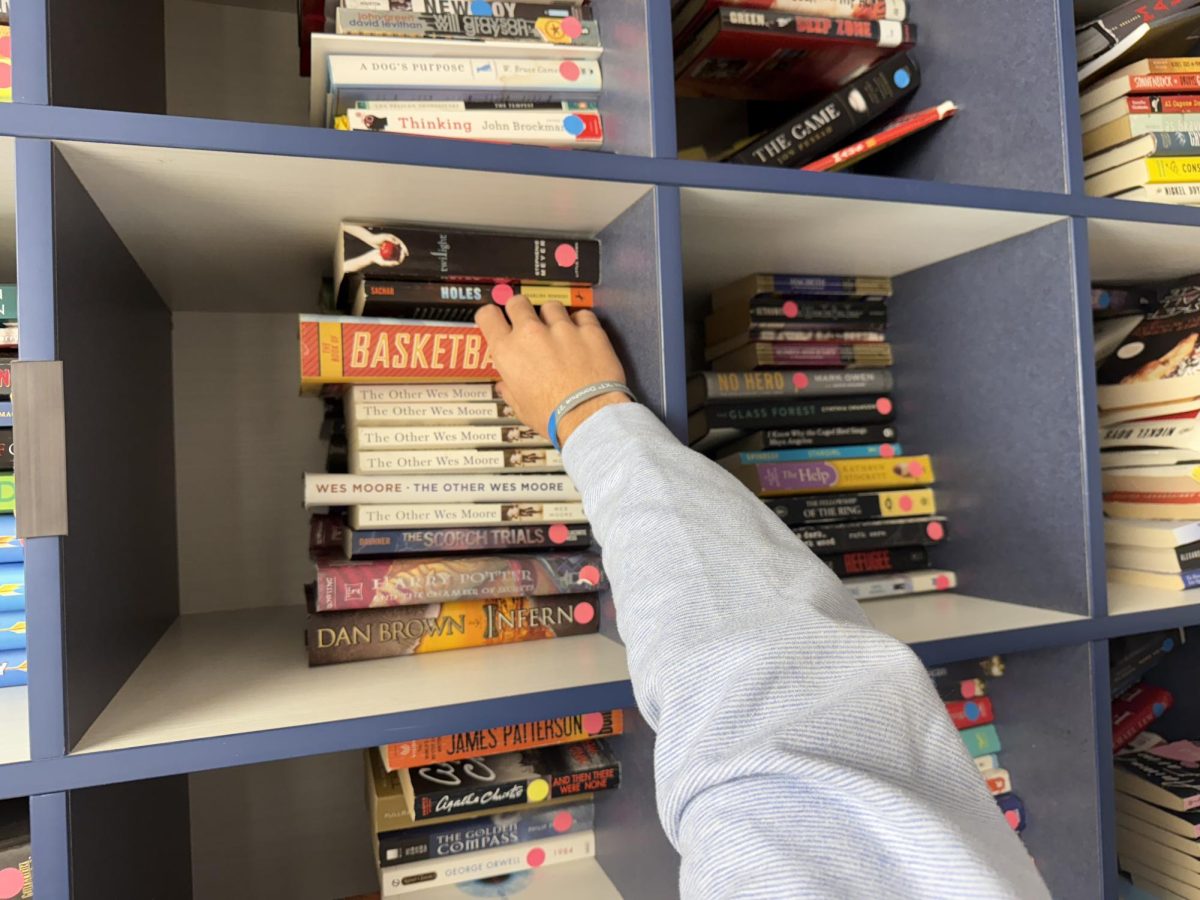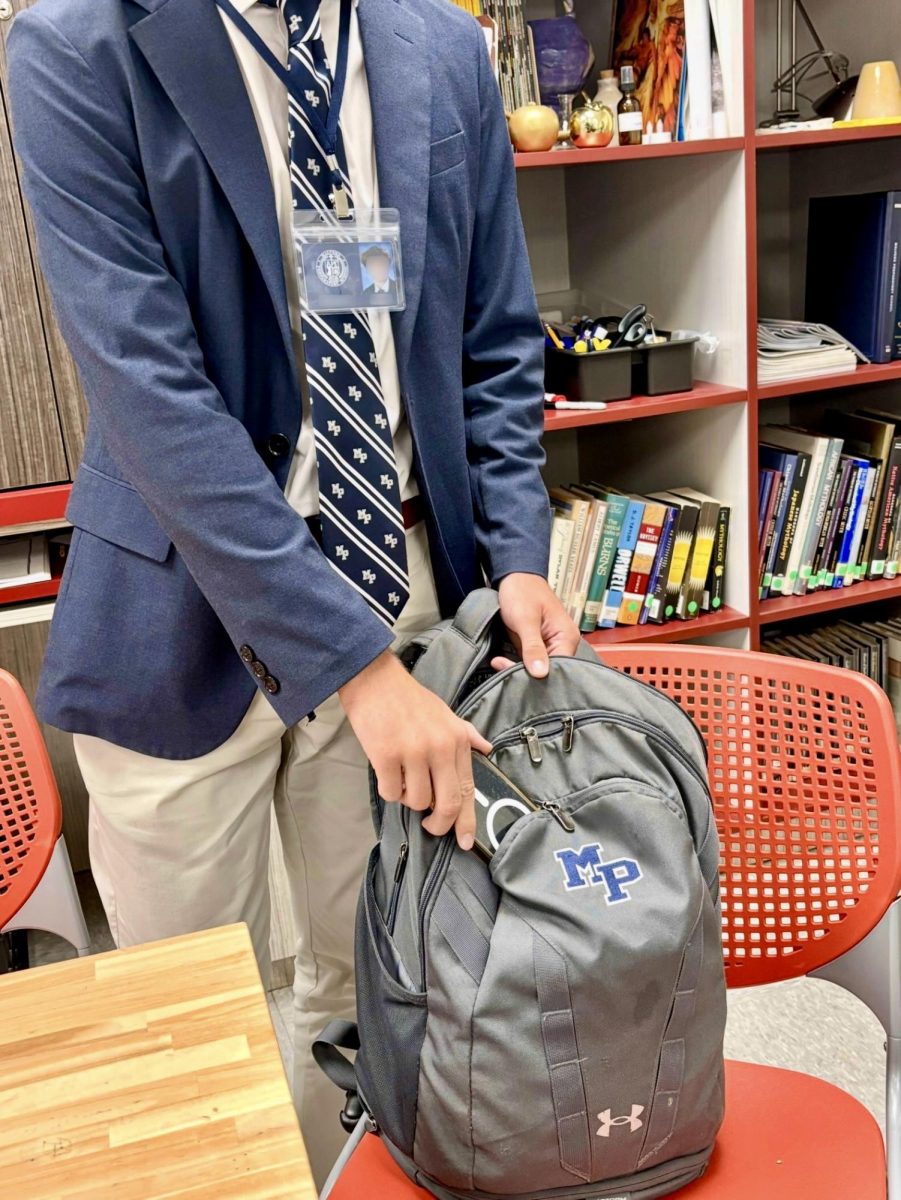Students in this year’s Honors Social Entrepreneurship class created projects to help people and learned business skills.
Malvern’s newest class has a different class structure that allowed students to pursue a business-like structure to help people. At the end of the class, some students secured partnerships for their product.
Director of Experiential Learning Mr. Aaron Brady said the class took both teachers and students out of their comfort zones.
“It was a class that didn’t have a definite beginning and end,” Brady said. “The students in the class kind of decided the route we took… it was like a weaving maze.”
The grading system for the class was not the same as a typical Malvern class. The honors level course employed “contract grading” in which the students determined what an A, C, and F were at the beginning of the class and received a grade corresponding with that scale, according to Brady.
There is no single teacher for Social Entrepreneurship. Instead a team of teachers including Mr. Brady, Mr. Rogai, Mrs. Lappas, Mr. DiDomenico, and Mr. Talbot all instructed and guided the class.
“[The class] is definitely different,” junior Nick Gatti said. “You go into thinking it’s a class, like you’re going to have homework and stuff. But it’s not like a class, it’s an actual semi-real-world thing. You’re making contact with people outside of Malvern the whole time. There’s no curriculum.”
According to Brady, students in the class had to identify a problem in the Philadelphia Area and create a solution for how to fix or improve it.
“We brainstormed first. We had all these ideas,” Brady said. “And from that list of 100 things we came up with, you know from garbage trucks to food to anything. We picked four.”
The class split into four groups. In addition to having one of the class’s teachers as its moderator, each group also had an alumni advisor.
The issues each team decided to tackle were food instability, suicide in teenagers, healthy eating education for people from lower-incomes, and creating academic incentives for first generation Americans.
The groups had to solve their problems with no money. “That’s where you really got to get creative,” Brady said.
The homelessness group discovered that the main problem with food donations is that there are plenty of non-perishable and perishable donations, but there is a lack of transporting the food.
Their solution was to use ride-sharing app Uber to transport the food. However, Uber has not yet agreed to partner with them, as of the student presentations on Wednesday, May 18.
The suicide group designed an app to try to make people happier. They are working with the American Foundation for Suicide Prevention (AFSP) and an independent developer to make the app.
The cost of the app is $6,000, and could potentially be funded by AFSP. If everything runs smoothly, there will be four to seven months before the app is available to the masses, according to their presentation.
The healthy eating education group connected to KIND Snacks with alumni help. The group traveled to New York to meet with KIND President John Leahy ’71. Leahy liked their project and donated 4,000 snack bars to the project, a value of approximately $3,000, according to the student presentation.
They also partnered with the Vetri Community Partnership. Vetri works with children to take them to local markets to show them where their food comes from in an effort to educate them about healthy eating.
Vetri received the KIND bar donation, decided they liked working with KIND, and will buy from them in bulk in the future to use in their summer camps. Vetri plans to create a KIND themed day centered around KIND bars and being kind to others, according to the student presentation.
The group created a placemat with healthy eating information on one side and a layout for a plate and silverware on the other side. Vetri will use these placemats at their summer camps.
The academic incentive group prototyped a website that works as a learning management system such as Schoology, with the exception that it rewards students who get good grades. Students who achieve better grades would get rewards such as gift cards from sponsors, according to the student presentation.
The group traveled to Mariana Bracetti Academy and talked with students and their principal, who greatly supported their idea.
They reached out to Gradelink, a service similar to Schoology. Gradelink liked their idea and presented an opportunity to work together in the future, according to their presentation.
All four groups presented to a CEO panel consisting of Talbot and alumnus Mr. Michael O’Neill, CEO of Preferred Sands, on May 18. Student groups periodically worked with O’Neill and other CEOs throughout the class.
The CEO panel offered feedback on the student presentations and suggestions on their projects. For instance, the CEO panel developed the idea of transporting food with Uber, according to senior Justice Bennett.
After the presentation to the CEO panel, the class is technically over. However, some groups have the potential to continue working on their project in the future.
The suicide group, for example, hopes to hire someone to develop their app over the summer and AFSP would like to promote it once it is completed. However, two of the members in the group are graduating seniors and the remaining three juniors will have no academic obligation to continue the project next year.
One of the departing seniors, Matt Pichola, said he plans to work on the project in the summer, but he’s not sure how far it will go.
“Our plan is to get [the app] to a point in which we can either sell our final product or just turn it over to a larger non-profit organization we have been speaking with,” Pichola said.
Brady suggested that future classes, including the class offered in the summer, could potentially take over projects from previous years. Brady said this will be an option, but not a requirement. “We want to allow [future students] to take [past projects] on if they want,” he said.
Part of the student-centered and experiential learning in the class is that the students decided who does what work and have to hold each other accountable, in place of a teacher in a usual classroom setting.
Brady said students needed to learn how to manage each other and assign tasks. One of the class’s catchphrases became “who will do what by when?”
“There were roadblocks here in there, days where we were just fed up and we don’t know what we are supposed to do. We don’t know where we’re going,” Gatti said.
However, Gatti saw a positive outcome. “We definitely got a lot of work done throughout the year,” he said.
Talbot shared his own positive reaction in comments to the Daily Local published on May 18. “The work is valid in that a social impact project could potentially be brought to market, it’s reliable we believe because if you took these same guys and gave them another project, they would produce at least as good a project and it is authentic because of the feedback that they will get,” he said.


